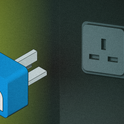In the four years since it was founded, the board of directors of the Internet Corporation for Assigned Names and Numbers ICANN-the "UN of Cyberspace"-has held its meetings in the organisation's hometown, a backwater of Los Angeles. It was there, for over two decades, that the internet's underlying operations were co-ordinated by a single computer science professor, Jon Postel, funded by the Pentagon. He managed the addressing system and routing numbers that enable the internet to work. He was the dictator of the dot.
ICANN, backed by the US government, took over the role when Postel died in 1998. The location of the board meeting served as a reminder that, no matter how global the internet became, its power base remained in the US. This year, however, the policy-makers and business executives that comprise ICANN will go to Shanghai, China, for the end of October board meeting. It marks a subtle, but symbolic, shift in power.
Although the myth persists that no one controls the internet, it is not really true. Any network system, be it a telephone, railroad, canal or cyberspace, requires a certain degree of central co-ordination. For the net, that job goes to ICANN, which sets policies over monikers like ".com" and has power to mint new addresses, acting as a kind of central bank for the internet.
Where in an earlier era, a global asset like the names and addresses of the internet-the lifeblood of the digital world-would be regulated by inter-governmental treaty, ICANN represents a departure. It is a California-based non-profit organisation that includes a toothless advisory committee of government representatives.
That is a big contrast to the telephone system, for instance, which is run by a UN agency full of diplomats. The International Telecommunications Union sets international standards like Britain's calling code of 44. But the internet, made up of private networks rather than nationally-licensed operators, lacks that sort of formal political control. Now many governments around the globe are considering whether the internet has become too important to leave to the control of a small, relatively unaccountable group of US lawyers.
It will fall upon ICANN, for example, to decide who will operate registries for non-Roman alphabet internet addresses that will work alongside the current dot-com system, so that languages like Chinese can be used for web pages and e-mails. To bring online the majority of the world that doesn't use Roman letters is a matter of digital decency. Yet the policies that govern how those domain names are given out affects freedom of speech online.
It's easy to see how Chinese speakers in other countries might object to China's controlling the names that people use to get online. And whoever controls the physical computer that maintains the dot (currently housed in a protected building in Washington, DC) can determine how the net evolves.
Internet diplomats have also been reflecting upon the consequences of 11th September. On that day, the telephone system on the east coast of the US broke down due to overload, while e-mails still got through, highlighting the durability of one system over the other. Looking into the future, governments are aware of plans to merge telephone numbers with the internet's domain name system (addresses ending in .uk, .com and so on). It doesn't make sense for one network to be overseen by a vast inter-governmental apparatus while the arguably more important entity, the internet, is left to the whims of ICANN.
The informal control hitherto exerted by ICANN and the US government over the inner workings of the internet is now being questioned. Advocates of change say that bringing in formal international institutions would ensure that the global public interest is upheld in cyberspace.
Yet the idea of an open global village is endangered by such proposals. In the worst case, by politicising the technology, more countries could decide to splinter themselves off from the network and censor internet content for their citizens in a way that China or Saudi Arabia already do. Or countries could be banished from the net in a cyberspace version of a trade embargo.
That is one reason why the US is loath to relinquish control of ICANN to the international community. Give power over the dot to China, and the Falun Gong gets thrown offline. Hand it to France, and Yahoo gets zapped. Brussels might revive the idea of a "bit" tax, taking tithes from every e-mail.
This is a real concern. In May, during talks between Chinese and US trade officials, China's powerful information industry minister, Wu Jichuan, requested that the US delete the .tw domain, which signifies Taiwan, from the global internet database. (China treats Taiwan like a breakaway province in all diplomatic matters.) The incident symbolises how power politics could amputate parts of the net and jeopardise the freedoms it affords.
US officials deferred the issue by asking Wu to address his complaint to ICANN, citing the organisation as the proper authority. But such stalling tactics can't last for long. As governments gain greater power over how the net is operated, there will be increased pressure on ICANN to succumb to the sorts of political constraints that encumber other international institutions. Even the liberal west isn't free of imposing restrictions on the net to uphold traditional political interests. Spain only allowed the European Commission to move forward with plans to operate its own .eu domain when it won a concession that "basque.eu" would be forbidden.
So what bearing does this have on the ICANN board meeting in Shanghai? There, ICANN is ready to approve a radical overhaul that will allow greater government involvement with the organisation. It follows the decision of the International Telecommunication Union's meeting in October, where member nations agreed that the UN-affiliate should examine how to get more involved in ICANN's work.
Moreover, ICANN itself is floundering. In its first four years, the group has failed to come to contractual agreements with most of its members, notably the administrators of the two-letter country code domains. When the network was still embryonic, Jon Postel handed out the geographical monikers to private individuals and institutions to operate. Now, many nations want them reassigned to their own government-affiliated entities. In addition to being lucrative economic assets, the two-letter suffixes represent the brand of a nation and provide a means to bring government functions and institutions online.
Some countries like France have successfully obtained control of their domains and even those of their overseas territories; other countries simply state as principle that country-code domains are an issue of national sovereignty. Although ICANN says it takes into account the interests of governments over who operates a domain, ICANN claims that it and not governments control them. At the same time, ICANN acknowledges that it is, legally speaking, powerless; it is a mere advisory body to the US Department of Commerce. Countries around the world are starting to get impatient with this double-speak.
So will America smoothly relinquish control over the dot? Today, ICANN's base in the US ensures the internet is more open than if it were under the wing of the mandarins in Paris or the People's Liberation Army in Beijing. But that cannot last forever. A first step towards a shift in the balance of power is expected in Shanghai.











